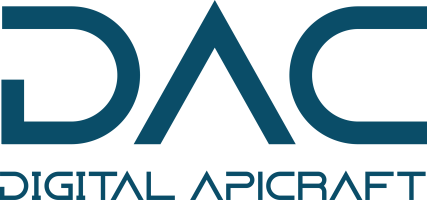With rising demand for data collection and deep analytics in the healthcare industry, healthcare APIs are in high demand. When you understand these data issues, you drift towards finding easier solutions and understanding how to use them and what are the challenges you face while you are using them.The healthcare industry can stay more connected with reliable, fast, and secure data transfer between healthcare applications. Healthcare API services should be convinced to share their APIs and allow other application developers to utilize information regarding patient health securely.
Difference between Medical and Healthcare API
Although the terms are almost similar, there is a huge difference between them:
- Medical API is an active pharmaceutical ingredient and makes sure that a particular medicine is efficient.
- Healthcare APIs refer to the Application Programming Interface that is a component of the healthcare software, and it can be utilized to enhance the experience of users while it works in harmony with other applications from different industries including healthcare.
What is an API in Healthcare?
An API makes communication possible between different applications and software. The exchange of data and the interaction between multiple systems is made possible by an application programming interface (API). For instance, you can view data from your electronic health record on your iPhone Health App, given you and your provider permit it. APIs act as data transmitters.Healthcare APIs have a wider scope and offer many advantages to API owners, third-party app users, and app developers in the healthcare industry.
Why are APIs Crucial for the Healthcare Industry?
APIs provide interoperability and data exchange opportunities in the healthcare sector and provide multiple benefits. However, they are simple technologies. The significance of APIs for healthcare is as follows:
- Expansion – APIs facilitate the safe and free exchange of data amongst apps. It leads to better cooperation and connectivity between the different healthcare companies, such as health insurance companies, pharmaceutical manufacturers, hospitals, medical device producers, and other organizations. Free sharing of information may contribute to providing better services in each sector. They can work more effectively and productively, saving time and invent innovative ideas to make the healthcare industry more efficient.
- Connectivity – Private information of patients is sensitive. The ability to access, analyze and reuse information from different devices, including the Internet of Things, brings self-care into a daily habit. But, this is not the case during your infrequent visits to a doctor.
- Innovation – Exchange, transfer, and analysis of data allow a variety of opportunities for innovation. Simple APIs have brought forth a significant revolution in the healthcare sector.
Fast Health Interoperability Resource
As health data of patients are sensitive and valuable, healthcare API services should abide by the rules of data standardization, integration, and security. Content can be exchanged between different applications while maintaining a set of requirements such as Fast Interoperability Resource. Content is seen as a resource, and it should follow these requirements:
- Have a proper definition and mode of representation
- Have metadata of a common set
- Have a humanly readable component.
FHIR works as a set of guidelines making it convenient to identify which resources can be accessed by a third-party application. It is a set standard for all the healthcare APIs, and going by the requirements permits you to create great healthcare solutions. You can even access the data stored and processed by different software.
Benefits of Healthcare APIs
APIs have multiple advantages in any industry. However, the advantages it provides to the healthcare industry are stated as follows:
- Enhance the Development Process – APIs allow quick and innovative advancement in the healthcare industry. With ready-made APIs, you can fasten the development process without making any difference to the final user experience.
- Integration and Personalisation – When you share your data with a third-party application, you will be able to get better insights into what supplementary applications the patients use for monitoring their health, how the data is managed by users, and what are the concerns they face regarding their health. It allows you to build better services on this information.
- Additional Profits – Every healthcare API is not free, and you can get additional profits from third-party developers by permitting them to use the APIs.
The Challenges in Introducing APIs
Although there are several benefits of APIs, there are certain barriers that you can face while introducing APIs.
- Privacy and Security – Data sharing can raise privacy issues. For protecting medical information, there are additional guidelines that are to be followed. For instance, you can use Open ID Connect for authenticating and authorizing access through APIs.
- Workflow and Culture – When the patient gets access to data, he/she begins to provide data inputs as well. Certain companies are cautious of the inflow of information.
- Budget – Building a healthcare API for an enterprise is expensive.
- Standards – Some standards are imposed on healthcare APIs. Complying with such standards might be costly as well.
DigitalAPICraft provides the healthcare industry with efficient healthcare API services which are beneficial for both the doctors as well as the patients. They help with API development, distribution and sharing, adding more value to medical data. Their professional team has experience in developing medical solutions and helps you with any queries regarding APIs.


